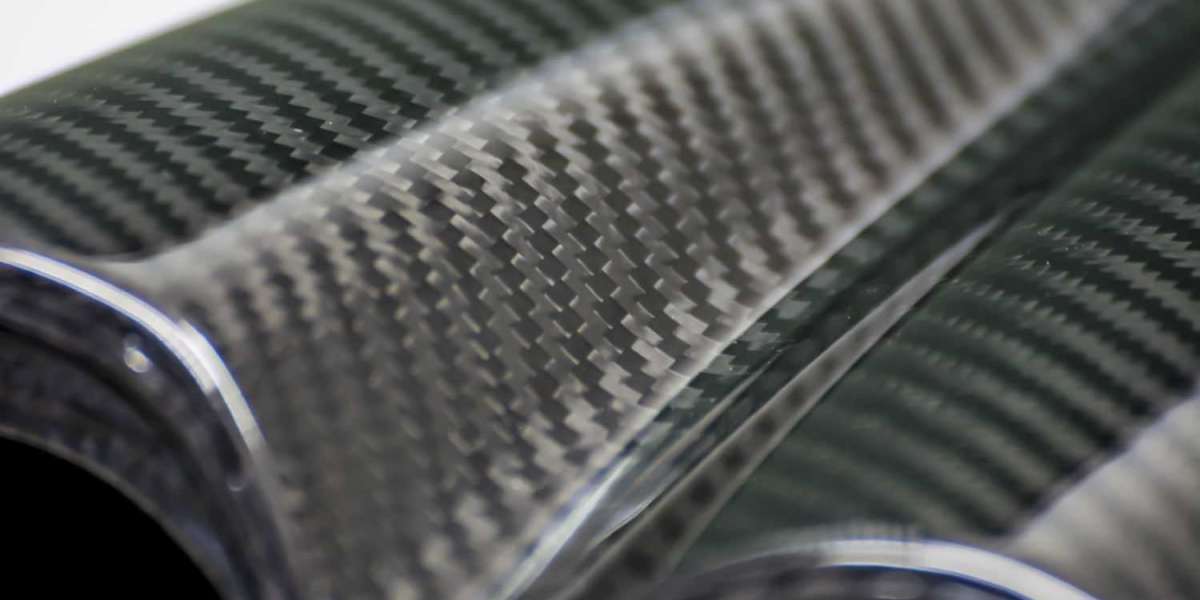Carbon fiber has revolutionized the way sporting goods are manufactured and used. This strong, lightweight material has been utilized in a variety of sports to enhance performance, durability, and aesthetics. From bicycles to hockey sticks, carbon fiber has become a popular choice for athletes and sports enthusiasts alike. In this article, we will explore how carbon fiber is used in sporting goods and the benefits it provides.
Carbon Fiber Manufacturing
Before we dive into the applications of carbon fiber in sporting goods, let's take a moment to understand how carbon fiber is made. Carbon fiber is a composite material that is created by weaving together carbon strands, also known as tows. These tows are then coated in epoxy resin and baked at high temperatures to create a solid and durable material. The manufacturing process of carbon fiber requires specialized equipment, and there are only a few carbon fiber manufacturers in the world.
Most Common Sporting Goods That Utilize Carbon Fiber
Carbon fiber is used in a variety of sporting goods due to its unique properties. Carbon fiber products are known for being strong, lightweight, and durable, making them ideal for use in sports equipment. Here are some of the most common sporting goods that utilize carbon fiber:
1. Bicycles
Carbon fiber is a popular material for manufacturing bicycle frames. Bicycles made with carbon fiber frames are lightweight and offer excellent stiffness, which allows for a more responsive ride. Carbon fiber frames are also known for their shock-absorbing properties, making them ideal for use on rough terrain.
2. Tennis Rackets
Carbon fiber is commonly used in tennis rackets to increase their strength and durability. Rackets made with carbon fiber are lightweight and allow for better ball control and increased swing speed. Additionally, carbon fiber rackets have better shock absorption, reducing the risk of injury to the player's arm.
3. Golf Clubs
Carbon fiber is utilized in golf clubs to improve their performance. Clubs made with carbon fiber shafts are lighter, providing greater swing speed and distance. Additionally, the use of carbon fiber in the clubhead increases the sweet spot, resulting in more accurate shots.
4. Hockey Sticks
Carbon fiber is also used in the manufacturing of hockey sticks. Hockey sticks made with carbon fiber are stronger and more durable than traditional wood sticks, allowing for greater power and accuracy when shooting the puck. Additionally, carbon fiber sticks offer better flex and vibration dampening, resulting in a more comfortable grip for the player.
5. Ski Poles
Carbon fiber ski poles are known for their lightweight and durable design. These poles are designed to absorb shock, making them ideal for use in skiing and snowboarding. The use of carbon fiber in ski poles also allows for greater control and maneuverability on the slopes.
CNC Carbon Fiber Parts
CNC (Computer Numerical Control) machining is a manufacturing process that uses computer software to control the movements of machinery. CNC machining can be used to create precision carbon fiber parts for sporting goods. The use of CNC technology allows for greater accuracy and consistency in the manufacturing process, resulting in high-quality parts.
CNC carbon fiber parts are commonly used in the manufacturing of sporting goods, including bicycle frames, tennis rackets, and golf clubs. These parts are designed to be lightweight, strong, and durable, providing athletes with the best possible performance.
Benefits of Carbon Fiber in Sporting Goods
There are many benefits of using carbon fiber in sporting goods. Here are a few of the key advantages:
1. Lightweight
Carbon fiber is significantly lighter than other materials commonly used in sporting goods manufacturing, such as aluminum and steel. This lightweight design allows for greater maneuverability and faster movement, resulting in better performance for the athlete.
2. Strength
Despite its lightweight design, carbon fiber is incredibly strong and durable. This strength allows for the creation of equipment that can withstand the wear and tear of sports activities. Additionally, the use of carbon fiber in sporting goods allows for a reduction in the weight of the equipment, without compromising on strength and durability.
3. Flexibility
Carbon fiber has excellent flexibility, which allows for a more comfortable grip and better shock absorption. This makes it ideal for use in sports equipment, where comfort and safety are crucial.
4. Aesthetics
Carbon fiber is known for its sleek and modern appearance. Sporting goods made with carbon fiber have a distinctive look that is both stylish and functional.
5. Sustainability
Carbon fiber is an environmentally friendly material. It is recyclable, and the manufacturing process produces less waste than traditional materials like aluminum and steel. This makes it an excellent choice for sports equipment manufacturers who are looking to reduce their environmental impact.
Conclusion
In conclusion, carbon fiber has revolutionized the world of sporting goods manufacturing. It offers numerous advantages, including lightweight design, strength, flexibility, and sustainability. With the use of CNC technology, precision carbon fiber parts can be created to meet the specific needs of athletes and sports enthusiasts. Carbon fiber is utilized in a variety of sporting goods, including bicycles, tennis rackets, golf clubs, hockey sticks, and ski poles. As more manufacturers adopt carbon fiber technology, we can expect to see even more innovative and high-performance sports equipment in the future.
Source: https://nitprocomposites.hashnode.dev/how-is-carbon-fiber-used-in-sporting-goods








